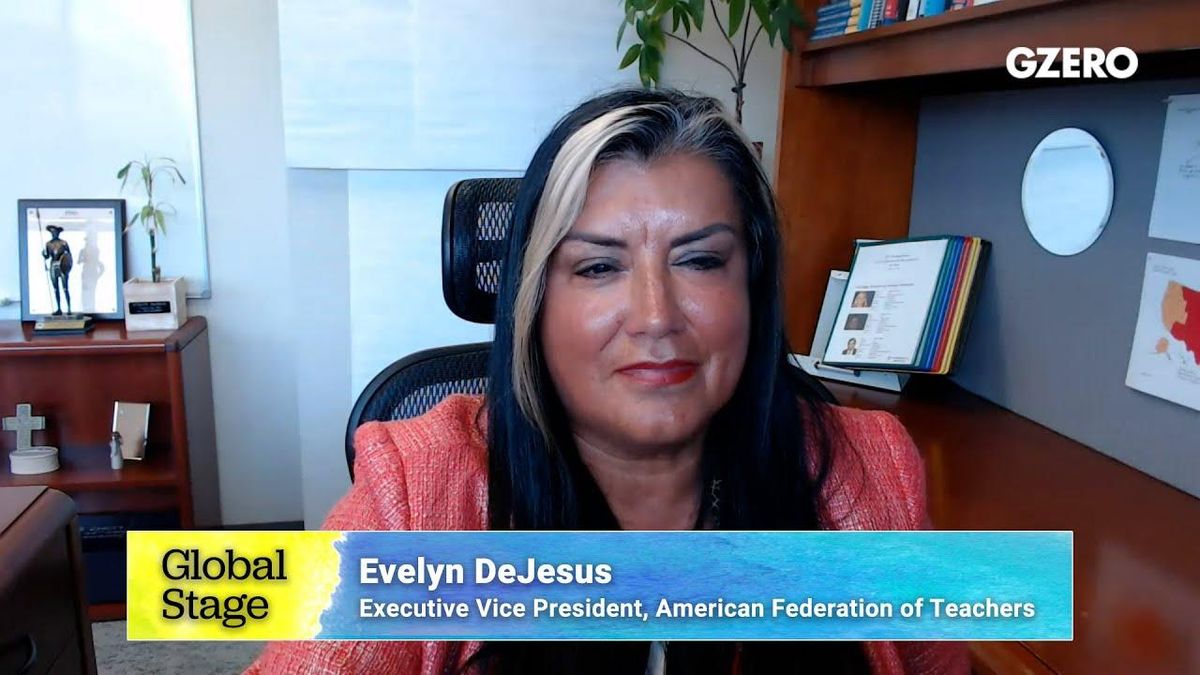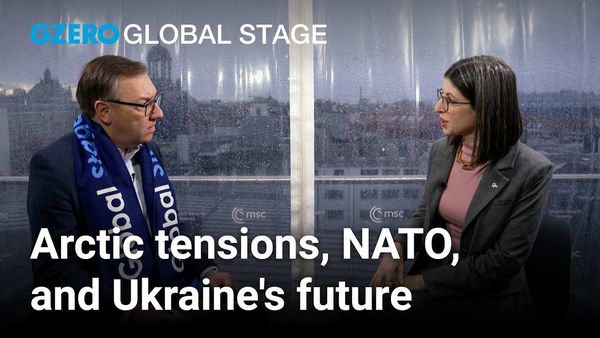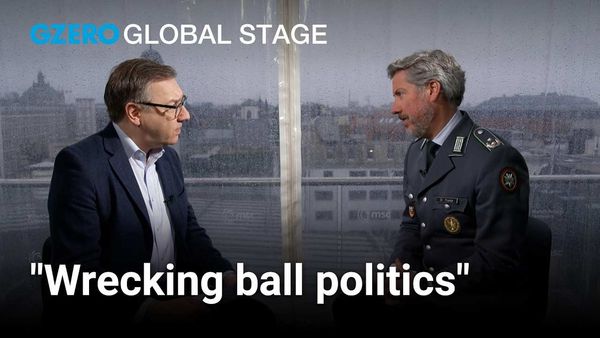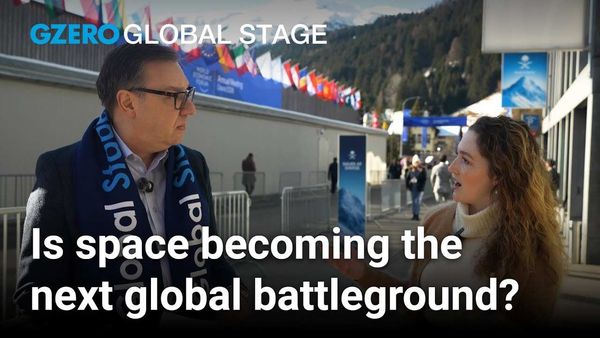It's hard to overstate how awful the pandemic was for children in America.
American Federation of Teachers Executive VP Evelyn DeJesus recalls how bad it got in New York City, where kids experienced the fear of their parents, who in turn worried about how COVID disrupted life and schooling for their children.
It's not about in-person vs. remote learning. There's no substitute for the former.
Still, she says during a Global Stage livestream conversation, teachers and parents worked very hard during that time. Their burnout is real, as is that of their kids.
The solution moving forward? "Build up" children so they are better prepared to succeed in school — and in life.
From Your Site Articles
- Teaching kids about vaccines: Don Brown's "A Shot In The Arm ... ›
- How education has improved women's lives around the world ... ›
- Stanford President Marc-Tessier Lavigne: The future of in-person ... ›
- Don't jump out the omicron window - GZERO Media ›
- Overcoming inefficiency with education - GZERO Media ›


















